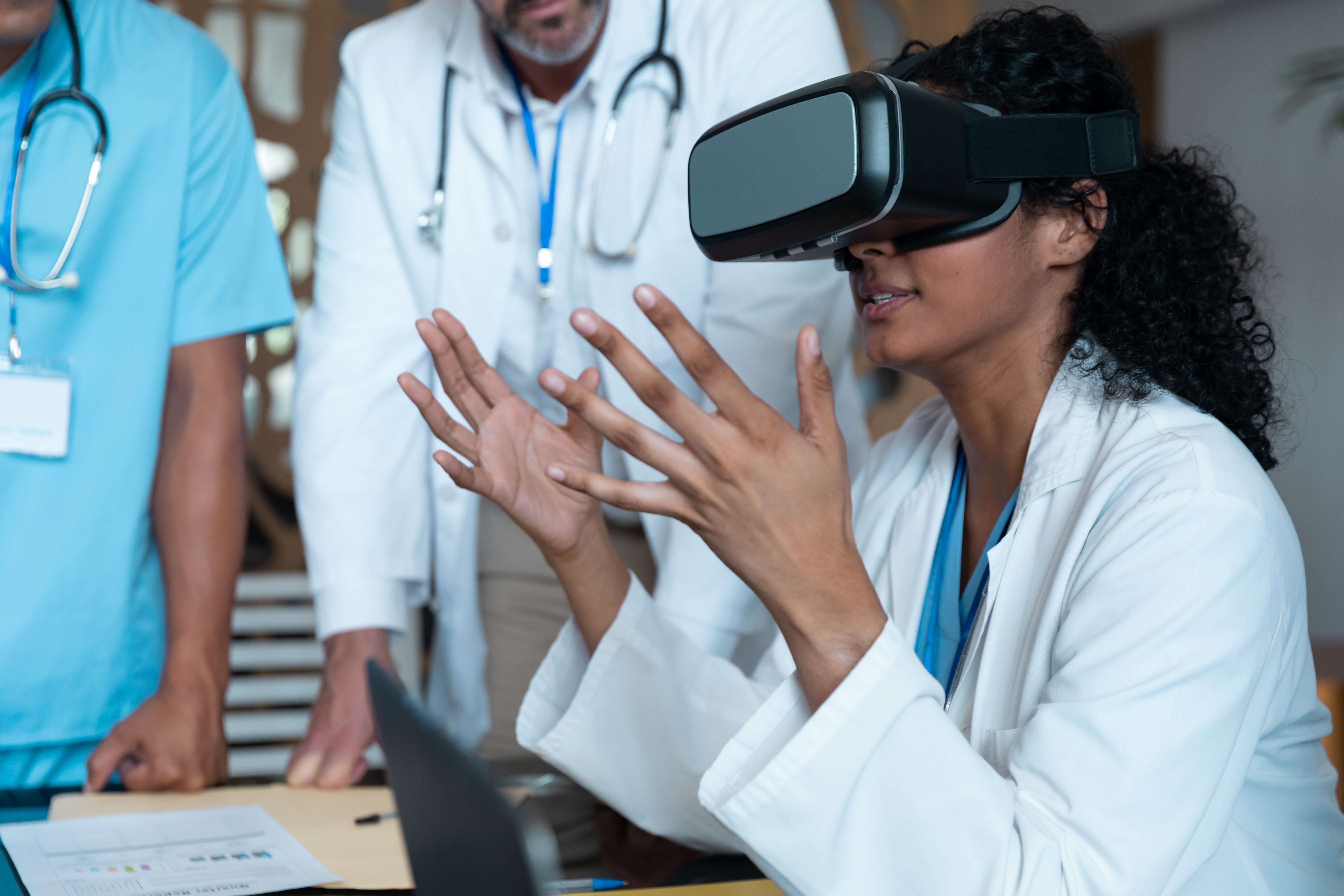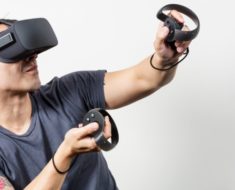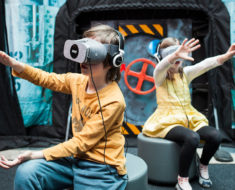
What are the benefits of virtual reality in business?
Virtual reality (VR) is a powerful technology that has the potential to revolutionize many industries. VR can be used to create immersive experiences that can be used for training, marketing, product development, and more.
- Enhanced training and development. VR can be used to create realistic training simulations that can help employees learn new skills and procedures safely and efficiently. For example, VR is used in the healthcare industry to train surgeons on new procedures and in the aviation industry to train pilots on how to fly new aircraft.
- Improved customer engagement. VR can be used to create immersive marketing experiences that can help businesses to connect with their customers on a deeper level. For example, VR can be used to give customers a virtual tour of a new product or service or to let them experience a destination before they book a trip.
- Accelerated product development. VR can be used to create prototypes and test new products in a virtual environment. This can help businesses to bring new products to market faster and more efficiently. For example, VR is used in the automotive industry to design and test new car models before they are built.
What is the impact of virtual reality on business?
VR is still a relatively new technology, but it is already having a significant impact on business. According to a recent report by Statista, the global VR market is expected to grow from $18.4 billion in 2022 to $134.6 billion in 2026. This growth is being driven by the adoption of VR by businesses in a wide range of industries.
Here are some examples of how VR is being used in different industries:
- Healthcare: VR is being used to train surgeons, treat phobias, and provide pain relief.
- Education: VR is being used to teach students about different subjects and to provide immersive learning experiences.
- Retail: VR is being used to give customers virtual tours of stores and products, and to allow them to try on clothes and accessories before they buy them.
- Manufacturing: VR is being used to design and test new products, and to train workers on new procedures.
- Real estate: VR is being used to give potential buyers virtual tours of properties.
What is the future of VR in business?
The future of VR in business is very bright. As VR technology continues to develop and become more affordable, it is expected to be adopted by even more businesses. VR is a powerful technology with the potential to revolutionize many industries. Businesses that are early to adopt VR will be well-positioned to compete in the future.
Dil Bole Oberoi


